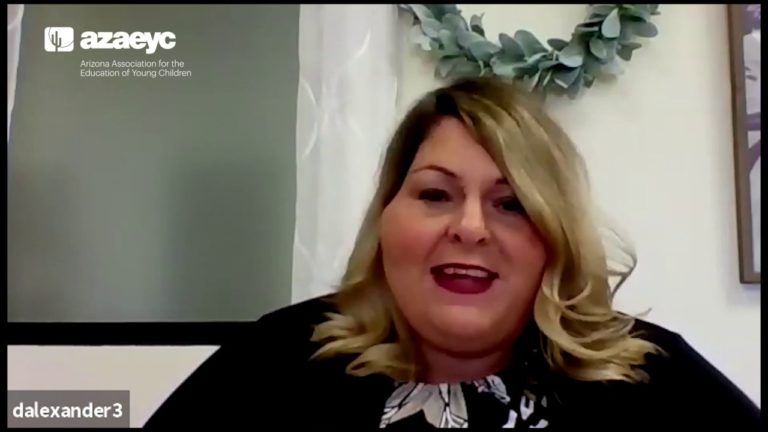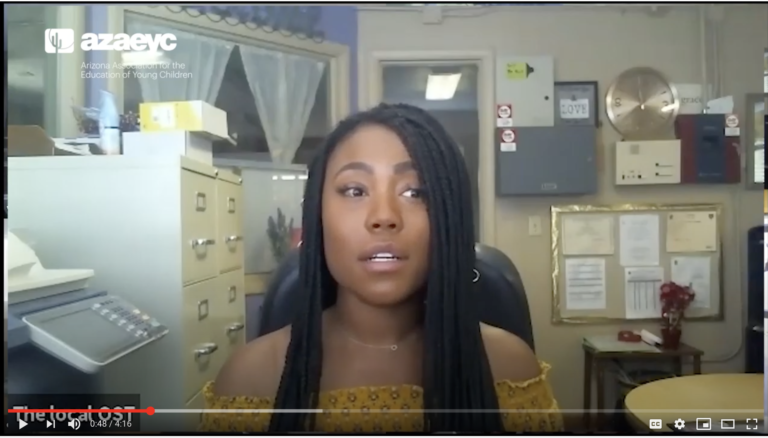As an affiliate of NAEYC and a partner with many local early childhood organizations, AzAEYC is committed to embrace diversity and inclusion as strengths, uphold fundamental principles of fairness and justice, and work to dismantle structural inequities that limit equitable learning opportunities. This requires individuals, organizations, and the community to be courageous. It means we must work to be actively anti-racist.
Some recent history: In 2019, the Governing Boards of the Arizona Association for the Education of Young Children (AzAEYC) and the Southern Arizona Association for the Education of Young Children (SAZAEYC) unanimously adopted the NAEYC Position Statement on Advancing Equity.
Then in June 2020, the AzAEYC Governing Board, in collaboration with the Southern Arizona AEYC Governing Board, released a statement affirming commitment to being anti-racist in our community work:
Structural racism and systemic inequalities are detrimental to the health and well-being of black, brown, and indigenous children, their families, and early childhood educators. Those of us with privilege must show up, stand beside, and speak out against injustice, racism, and inequity. We must be actively-antiracist.
All children have the right to equitable learning opportunities that help them achieve their full potential as engaged learners and valued members of society. So, all early childhood educators have a professional obligation to advance equity, embrace diversity and full inclusion as strengths, uphold fundamental principles of fairness and justice, and work to eliminate structural inequities.
To be clear: it is simply not enough to declare, “I’m not a racist.” We must be active. We must speak up. We must be actively anti-racist.
We stand with communities protesting against racial injustice and oppression. We strive to create safe spaces to amplify the voices of the disenfranchised. This is our mission.
We’ve gathered a list of resources that support educators in teaching for equity. As we discover more resources, we’ll add them to this list.
Resources
An Anti-Racist Approach to Supporting Child Care through COVID-19 and Beyond (Center for Law and Social Policy)
Anti-Racism Resources (National Women’s Law Center, 2020)
Anti-Bias Education for Young Children and Ourselves (NAEYC)
Becoming Upended: Teaching and Learning about Race and Racism with Young Children and Their Families (Cole & Verwayne, 2018)
Black Boys Matter Part 1: Cultivating Their Identity, Agency, and Voice (NAEYC)
Black Boys Matter Part 2: Strategies for a Culturally Responsive Classroom (NAEYC)
#BlackLivesMatter (2013)
Early Childhood Educators: How Do Your Biases Affect Your Students? (Ijumaa Jordan)
Know Your Rights (American Civil Liberties Union) – includes resources on LGBTQ+ rights, women’s rights, disability rights, voting rights, immigrant rights, and information about our rights to live free from discrimination.
Living the Advancing Equity Statement: Books, Articles, and Reports (NAEYC, 2020)
Our Children, Our Workforce: Why We Must Talk About Race and Racism in Early Childhood Education (Matthews & Jordan, 2019)
Talking about Race: Being Antiracist (Smithsonian National Museum of African American History & Culture, 2020)
The Convention on the Rights of Children (UNICEF)
Understanding the Transgender Community (Human Rights Campaign)




